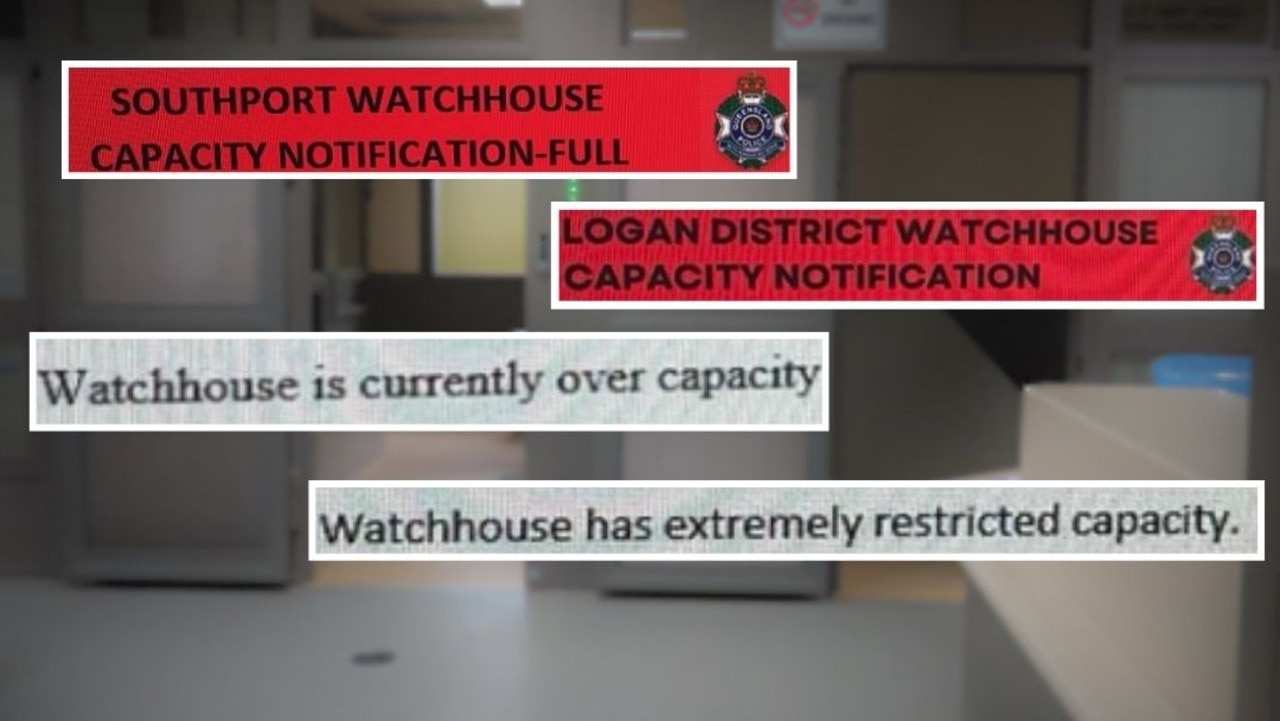Sons of Gold Coast entrepreneur, teacher in mass college drug overdose scare
THE principal of Gold Coast school rocked by a mass near-fatal drug overdose called it a major “wake up” to online dangers, with a top entrepreneur and teacher among the shaken parents.
News
Don't miss out on the headlines from News. Followed categories will be added to My News.
THE principal of the school rocked by a mass near-fatal drug overdose called it a major “wake up” to online dangers, with a top entrepreneur and teacher among the shaken parents.
The sons of a millionaire Gold Coast parent and a senior Saint Stephen’s College teacher were among the seven rushed from the school to hospital on Wednesday afternoon after the overdose.
Three were discharged yesterday but Gold Coast University Hospital confirmed four remained in care at 9.15pm.
“They are steadily improving but they will be staying in overnight,” a spokeswoman said.
Police revealed yesterday the Year 10 teens all ingested quantities of a drug ranging from “a taste” to “dangerous” amounts during a period of several hours in the morning.
WHERE COAST STUDENTS BUY DRUGS ONLINE
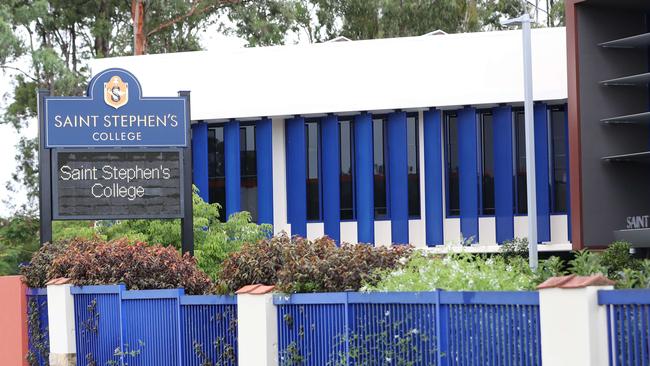
Toxicology results were not being released last night but earlier Detective Senior Sergeant Greg Aubort said it was important to understand “it’s not your classical illicit drug”.
Part of the police probe was into whether it was obtained online on the so-called Dark Web, with speculation it was Russian designer drug Phenibut, banned in Australia on February 1.
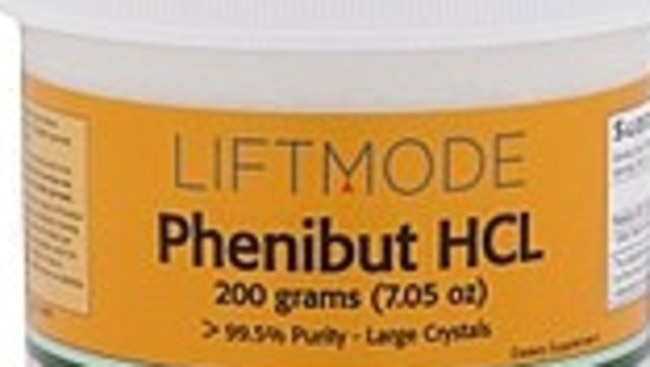
The relaxant was “something we are looking at ... it’s certainly on our radar,” he said.
He urged anyone with footage of the incident or knowledge of any more of the substance out there to come forward: “The police, community, school all have a responsibility to understand what is going on out there in this generation.”
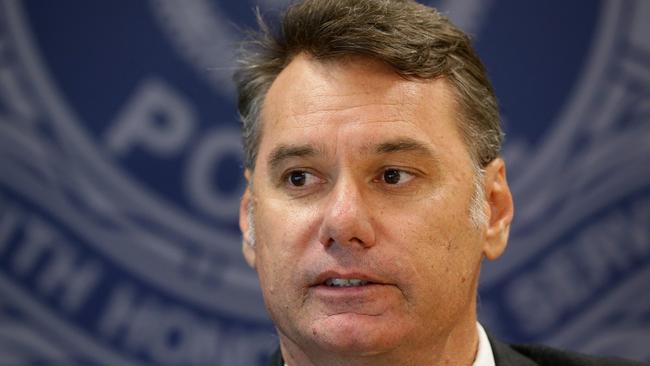
Saint Stephen’s College principal Jamie Dorrington said he understood the substance that put his students in hospital — including some into intensive care — was bought online.
“That’s the message I’m getting, they got it off the internet. Any school that goes through this, it’s a wake up call isn’t it — you don’t go to work expecting something like this to happen.”
Mr Dorrington added the priority was ensuring the five students still in Gold Coast University Hospital made it out OK, but the warnings were clear for young people considering experimenting.
“I’m just hoping the kids get out of hospital ... learn their lesson and the kids who saw it happen appreciate the warnings we give them are real. We are not saying things to spoil anyone’s fun. We are saying it because we are concerned,’’ he said.
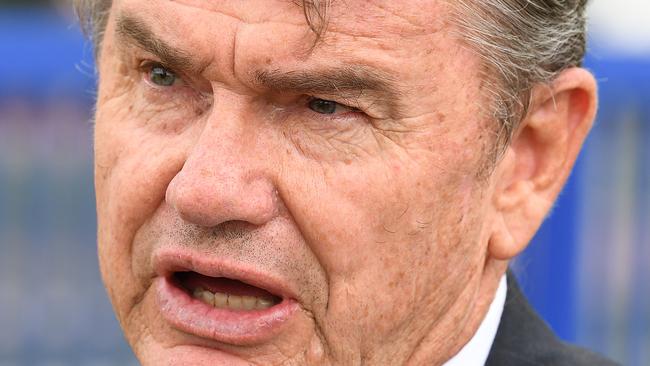
“Kids these days live in a far more complex world than we did. It’s taken off, this stuff. You can’t control that part of it. The web is expanding at a rapid rate and young people have a lot more choices to make than we ever did.”
Mr Dorrington said the challenge was the internet. The Dark Web in particular was opening up access “to all sorts of sinister things and it’s not a place anyone wants their kids to be”.
Mr Dorrington said teenage experimentation had “been around since Adam was a boy”.
“But the things they are now tampering with haven’t. There is risk taking that’s controlled and there is risk taking where you have no idea what the results will be because you don’t know what you are taking — and it appears to be what these kids did.”
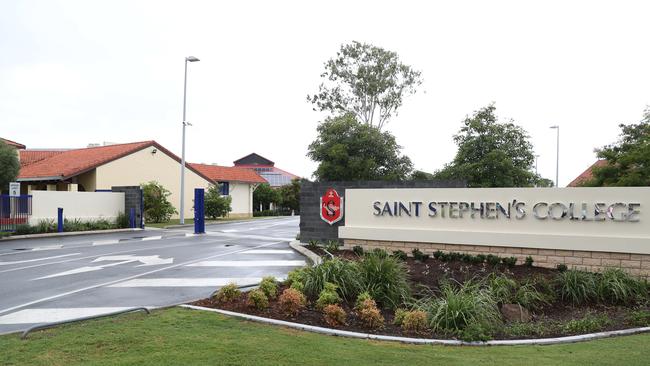
Mr Dorrington said he would not discuss how the school would approach disciplining those involved at this stage as parents had enough stress “without worrying about that”.
“We and the parents first want them to get out of hospital and then we’ll go through the process we go through.”
Detective Sen-Sgt. Aubort said yesterday police were not just interested in pinning down the specifics of the Saint Stephen’s College incident but what was occurring generally: “ ... to understand if it was obtained on the worldwide web, or if obtained by alternate means, we need to understand as a service those dynamics and where this generation is moving to obtain drugs like that and the motivation for them.
Police had recovered evidence of what appeared to be a “powdered drug” at the scene but were still working on how it was “introduced” to the teens.
“The barrier here is some of these kids are not able to speak right now,” he said, adding officers had spoken to one of the seven yesterday.
“Individuals took different doses, some small, some large, which culminated in their presentations at hospital and how serious they were — everything from a taste to what I call a significant amount — which was clearly dangerous,” Detective Sen-Sgt Aubort said.
‘LUCKY OVERDOSE WAS AT SCHOOL’
Alert Saint Stephen’s College teachers first noticed students were deteriorating on Wednesday in the lead-up to seven being rushed to hospital, some in critical condition.
College principal Jamie Dorrington, speaking to the Bulletin yesterday, said his understanding of how the dramatic scenes unfolded was that teachers first realised the “kids were not well”.
“They were not concentrating,’’ he said.
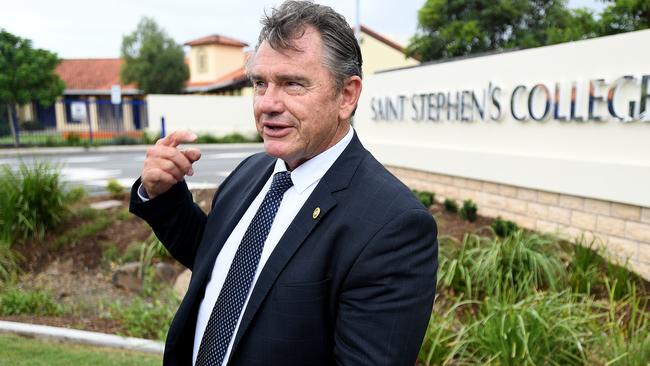
The students were taken to the sick bay.
The school nurse was summoned and an emergency call made to the Queensland Ambulance Service at 12.48pm, with paramedics initially attending to three students “on the verge of passing out”.
Paramedics then called for reinforcements when another four began slipping in and out of consciousness.
“Had the circumstances been different and we didn’t have teachers take immediate action or a school nurse — if they were out in a paddock on camp or something — it could have been a much worse outcome,” Mr Dorrington said.
Detective Senior Sergeant Greg Aubort said he could not fault the school’s handling of the incident.
“We really appreciate the risk management and governance in all schools to recognise any child coming down with anything and escalate something that might be out of the ordinary,” he said.


